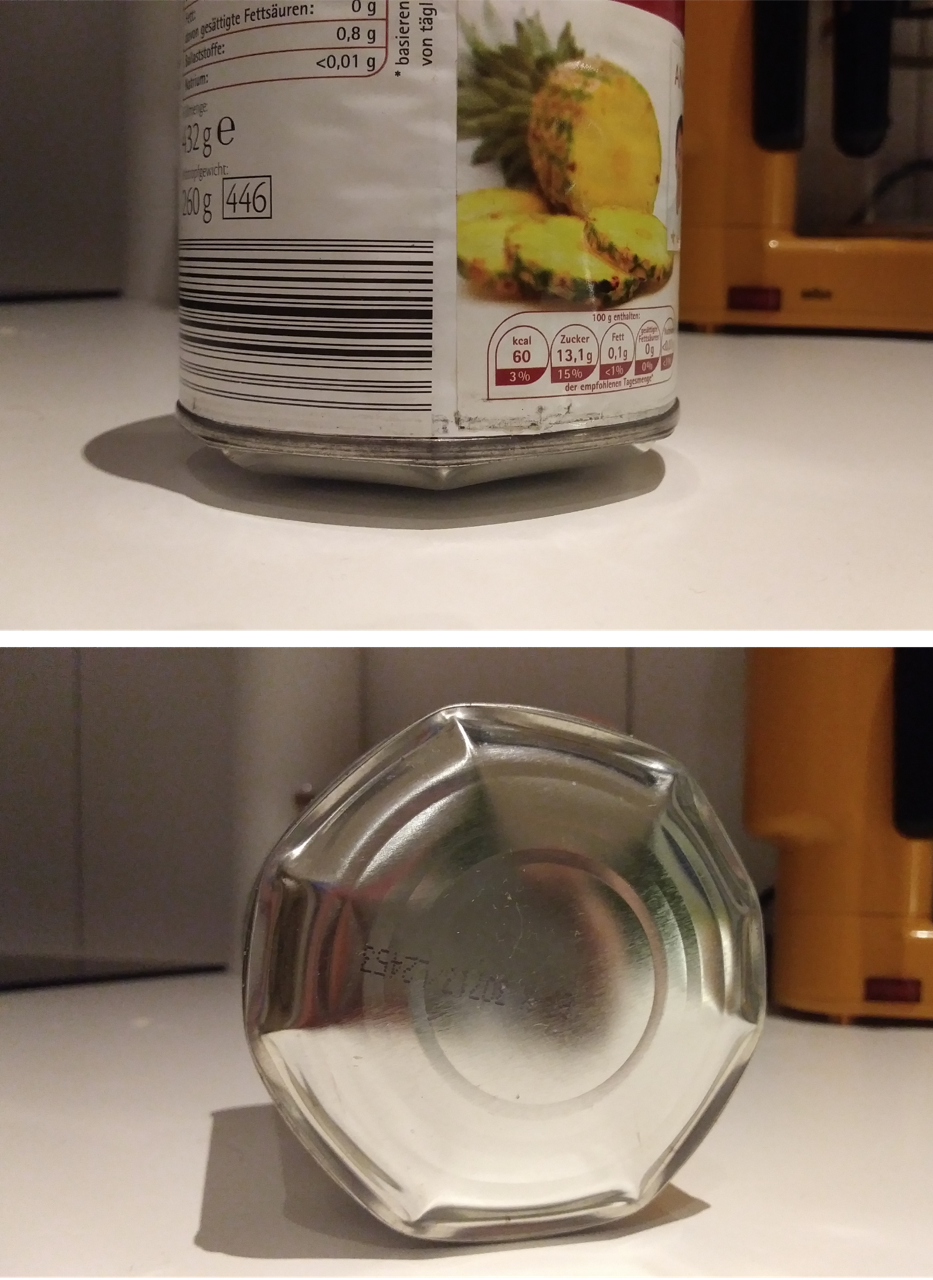Very few food products have an expiration date printed on them. A lot of them have a “Sell by” date, which is not an expiration date. We have a local milk producer that prints a “Sell by” date on their bottles. The rule of thumb is that if it’s stored in proper refrigeration, unopened, it’ll keep for 2 more weeks. (Plus another week to use it up.) But it’s impossible to explain that people. The disgust reflex is strong, and you can almost watch it on their faces as it overrides people’s rational faculties. (Honestly, that experience helps me understand the recent election results.) As a result, the store that I worked in would as a rule of thumb take the milk off the shelf 3 days before the “Sell by” date, even though it’d be good for another 3 weeks. Milk that didn’t sell, we had to pour down the drain.
One time when I was working there, I had to deal with an irate customer who returned some fancy cheese hors d’oeuvres that she’d received as part of her pick-up order because the package had a “Sell by” date on it that was a couple days past. I refunded the cost of the item, and when I took it back to the cheese department, our cheese monger explained that the date was really only useful for the store to keep its stock rotated. The product didn’t spoil after that date; in fact, it got better for several months as the cheese aged. But, we agreed, it’s impossible to explain that to people.
So, to the question, also while working there, I made a delivery to an elderly woman whose son ordered groceries for her. She had a number of items that she didn’t use before the “Use by” date, and asked if I’d take them. One of them was a container of plain yogurt. I don’t use a lot of yogurt, mainly as a condiment for Indian dishes, so I didn’t even open it until about a month after the “Use by” date, and finally finished it probably 3 months after. (Just don’t let it warm up, open only briefly, and always use a clean utensil to scoop it out.) It still tasted fresh and enjoyable.
I still have butter in the refrigerator with a “Use by” date in 2023, because I bought a lot of it when it was cheap (on sale and employee discount), and put it in the freezer. I have eaten canned food several years after the “Best by” date. The heuristic is easy: It it smells good, it’s edible. If it smells off, toss it. But I know that there are plenty of people out there with a hair-trigger disgust response, who are convinced that the moment the clock ticks over to the date printed on the package, the contents turn to poison. This heuristic probably grosses them out. Oh well, people aren’t rational.
This can of pineapple slices has been found in the back of the food cabinet in December 2020. Its expiration date was in July 2017. I did not open it. I carefully removed the can outside right into the trash bin. I didi’t want to risk an explosion of this fruit bomb.

Not sure it counts.
For my 30th birthday my father opened a bottle of 1878 Porto his father bought.
So it was 130 years old.
It was… Unreliable. Full taste, very sweet, much more liquorous than regular Porto. We drank it quickly, what was left was fully undrinkable only a few hours later, totally spoiled. But for half an our after being opened, it was truly the most amazing Porto I ever had.
It has been bottled before cars existed… Before electricity became widespread…
Really a lifetime experience.
Now its gone, but I keep the bottle for future storytelling.
If we’re talking about ignoring a date printed on the package, salt. Dunno why it had a date printed on it at all.
If we’re talking about something that does eventually go bad, it would be some other spice that only rarely gets used, dunno which one though.
If we’re talking about something actually considered perishable, eggs.
Same with (bottled) water. The same water that was around even before dinosaurs digested it, also has an expiration date. I assume it has to do with law: everything considered to be a food has to have an expiration date printed on it, no matter how ridiculous it seems.
I could see that having to do with the plastic bottle degrading.


